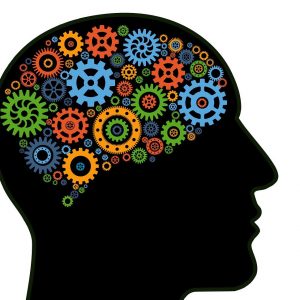
01 Dec What Are the Executive Functioning Skills Your Child Needs to Succeed?
What Are the Executive Functioning Skills:
12 EF Skills Your Child Needs to Succeed
Executive functioning skills are the brain-based cognitive processes that help us govern our behavior, make decisions, and create and attain goals. There is a strong and undeniable correlation between executive functioning skills and academic performance in as early as primary education. Students and adults with poor executive functioning skills are likely to be disorganized or forgetful, struggle to get started on chores, and become quickly sidetracked. When patterns are disrupted or expectations are not met, they can feel enraged and act without considering the implications of their actions. So what are the executive functioning skills necessary for an individual to succeed academically and in later life?
What are the Executive Functioning Skills?
Executive functioning skills play a crucial role in an individual’s success not only in school but also in later life—whether in their professional or family lives. Yet, these skills are not inherent in children. Rather, children are born with the potential to develop them. It is crucial for executive functioning skills to be explicitly taught and harnessed starting at an early age. According to an article published by Harvard University’s Center on the Developing Child, early experiences create a significant impact on a child’s brain architecture. An individual’s brain architecture is the foundation for all future learning, behavior and health.
Find out more about each executive functioning skill, below.
1. Planning
Our ability to identify and manage future-oriented tasks is referred to as planning. Identifying future duties and events, creating goals to achieve them, and understanding the procedures required to execute the work ahead of time are all examples of planning behaviors.
As we start to focus on items and perform intentional body motions like grabbing and pointing, we begin to build planning skills. Planning skills allow us to interpret more complex instructions and follow actions to achieve goals as we progress through our early learning years up to the age of 12.
By the time we reach adolescence, we can plan out the steps to larger undertakings on our own, including collaborating with others to achieve our objectives. As adults, we can create and manage several plans to achieve multiple goals at the same time.
2. Time Management
Managing time is simply about accomplishing tasks or goals within a given period in the most efficient way possible. Individuals with good time management skills can not only estimate how long a task would take but also budget their time to successfully complete their goals.
The ability to predict, allot, and stay within time constraints and deadlines improves as students progress through middle and high school. By the time we reach adulthood, we’ve honed our time management skills to the point that we can seek out and apply solutions to help us manage our time more effectively, as well as change our routines and schedules as needed. Read our blog about Time Management Strategies to know more.
3. Task Initiation
Task initiation refers to one’s ability to start a task or project quickly and efficiently without excessive procrastination. In young children, this means working on assignments as soon as they are given instructions. For high school students, they refrain from putting off starting a project until the last minute.
4. Organization
While organization implies different things to different people, keeping one’s belongings and responsibilities in order is an important executive functioning skill. Having good organizational skills reduces irritation and gives you a sense of control. Tasks are completed more quickly and efficiently, giving you more time to do what you want.
Early in childhood, we begin to learn organization skills by demonstrating an interest in and knowledge of categories in our environment, such as size, shape, and color. We can recognize patterns and organize items by form, function, and class by the time we are toddlers.
Throughout primary school, we gradually learn to be responsible and arrange more and more of our classroom resources. As teenagers and young adults, we need to be able to build and sustain organizational systems, as well as reorganize as necessary.
5. Problem Solving
Our ability to recognize and define an issue as well as productive solutions to solve it is referred to as problem-solving. Because it necessitates attentional control, working memory, and planning, it is intimately linked to many other executive functioning skills.
Through play, we begin to establish problem-solving skills in infants and toddlers. As children progress through their early learning years, they become more adept at making decisions, taking turns, and brainstorming solutions to problems recognized by adults. When children enter adolescence, they can recognize issues in a variety of situations, including at home, school, employment, and with friends. They are capable of resolving disagreements and making decisions, but they may seek adult advice and help. Adults with strong problem-solving abilities can come up with original answers to challenging challenges and persevere through several solutions until the issue is resolved.
6. Flexibility
Our ability to withstand unexpected changes is referred to as flexibility. This executive functioning skill encourages flexible thinking and the ability to react to change and unpredictability.
Our flexibility as newborns is limited, and we frequently cry or convey our dissatisfaction when our environment fails to suit our demands. Toddlers learn to withstand more and more alterations in activities by engaging in dramatic and imaginative play with their peers. We participate in planned activities and routines as we progress through middle and high school, where unanticipated events and changes are common.
These enable us to learn to respond at the moment, resulting in significantly less stress in adulthood.
7. Working Memory
Our ability to remember and retrieve information is referred to as working memory. It allows us to take in information from our environment and use it to complete a task or achieve a goal. Even though our peak working memory capacity does not emerge until young adulthood, there is a lot of research on developing working memory in young children.
8. Stress Tolerance
Stress tolerance is about one’s ability to cope with uncertainty, change, and various demands while thriving in difficult settings. This type of executive functioning skill is particularly important for adults and professionals.
9. Sustained Attention
Sustained or undivided attention is the ability to stay focused on a situation or task despite distractions, exhaustion, or boredom. An example of sustained attention in younger children is completing a five-minute task, whether a chore or homework, with minimal supervision. For teenagers, sustained attention is shown when they can complete one to two hours of schoolwork with short breaks.
10. Self-Monitoring
Self-monitoring entails the ability to assess one’s own conduct or performance and make necessary improvements and changes. It’s one of the most difficult executive functioning skills to master, and not everyone has well-developed self-monitoring skills.
We learn to monitor ourselves at a young age by imitating others. We begin to learn how to self-monitor by analyzing how our conduct is similar or different from others and then modifying it to fit. By middle and high school, we use self-monitoring in activities like journaling, checklists, and reflection.
11. Attentional Control
We believe attentional control to be a foundational activity for success in executive functioning, in addition to emotional and impulse control. Attentional control entails paying attention for long periods and concentrating on activities until they are completed.
We learn to direct our sight and focus on elements in our surroundings when we are young, and this is the beginning of attentional control. Peek-a-boo and hide-and-seek are simple activities that help young toddlers focus and respond to signs that demand attention. As we get older, we can focus for longer periods or on specific goals, such as saving for a specific item. We can also establish and carry out plans in the face of distractions. By the time we reach adulthood, we’ve figured out what causes distractions and how to avoid them when we’re working on a task.
12. Impulse Control
Impulse control, like emotional control, refers to how we manage our behavior and emotions to avoid harming ourselves or others. In our toddler years, we learn basic safety reactions—such as avoiding a hot stove or not rushing into the middle of a street—which help us develop impulse control. We anticipate children to require ongoing monitoring for impulsive behaviors, but as they get older and more autonomous, we begin to withdraw our guidance.
We continue to engage in certain dangerous behaviors in our preteen and teenage years, but we are more likely to adhere to safety regulations and aim for social norms. By adulthood, we can control our impulsive behavior in all situations, avoiding the majority of cases of rushed, reckless, or harmful behavior.
———————-
Read more blog posts:
- What is Executive Dysfunction?
- What Part Of The Brain Is Responsible For Executive Functioning?
- How Does Executive Function Coaching Prepare Students For College?
Handouts:
- What is Executive Functioning?
- 4 Types of Attentional Focus
- Strategic Observation And Reflection (SOAR)
- 13 Executive Function Skills for Academic Success
- Working Memory Strategies
————————–
⏩What are the Executive Functioning Skills?⏪
Want to improve your child’s executive functioning skills?
Chat with Themba Tutors Today!
Our Executive Functioning Coaches are ready to help you right now!
Call: (917) 382-8641, Text: (833) 565-2370
Email: [email protected]
(We respond to email right away!)
Craig Selinger
Latest posts by Craig Selinger (see all)
- Finding The Best Tutor/Learning Specialist For A Student With A Learning Difference - July 14, 2022
- 👉 What to Look for in Your Child’s ADHD Coach 👈 - June 11, 2022
- 👍 8 Effective Ways to Practice Positive Parenting for Teens 👍 - June 9, 2022




How Can Mindfulness Improve Executive Function Skills?
Posted at 10:00h, 12 April[…] While the effects of mindfulness on executive function skills have not been extensively examined, there are several interesting studies that show its positive impact on one’s ability to self-regulate. Executive functioning refers to the brain-based processes that include flexible thinking, self-control, and working memory. These skills are essential not only in a child’s academic success but also in later life. (Read more about the Executive Functioning Skills Your Child Needs to Succeed.) […]